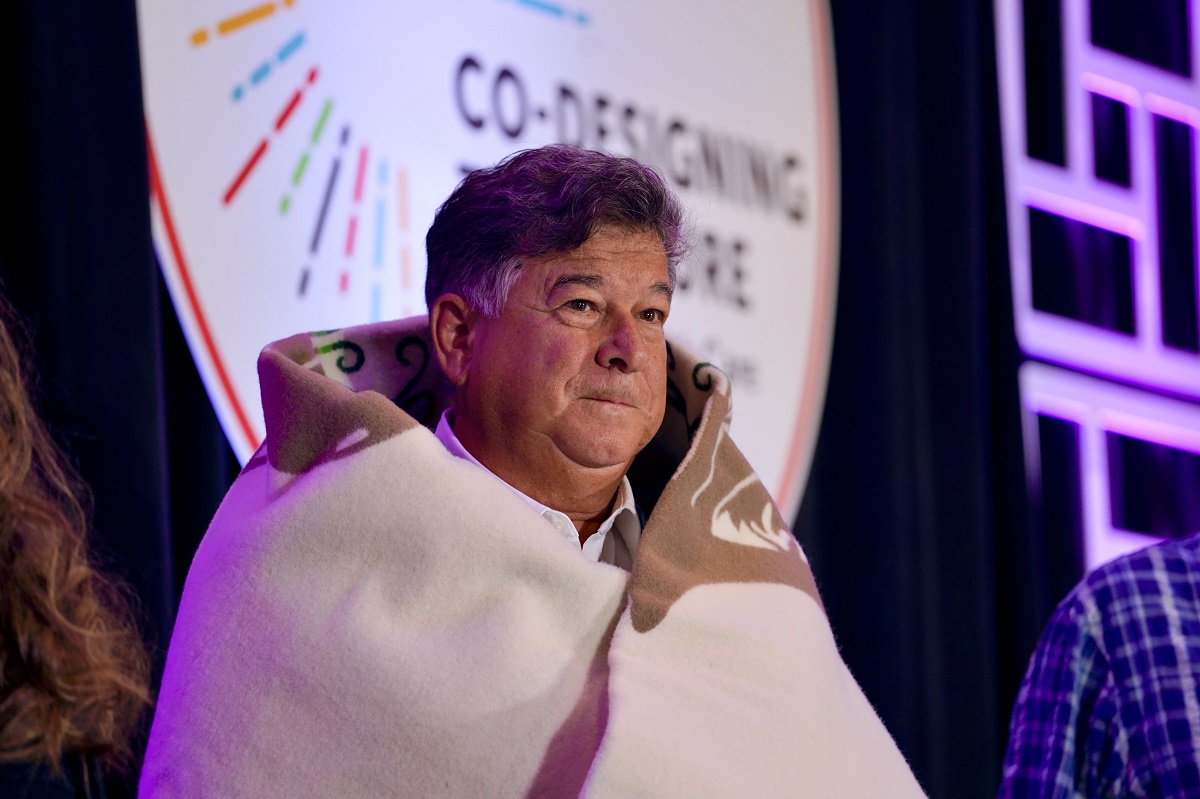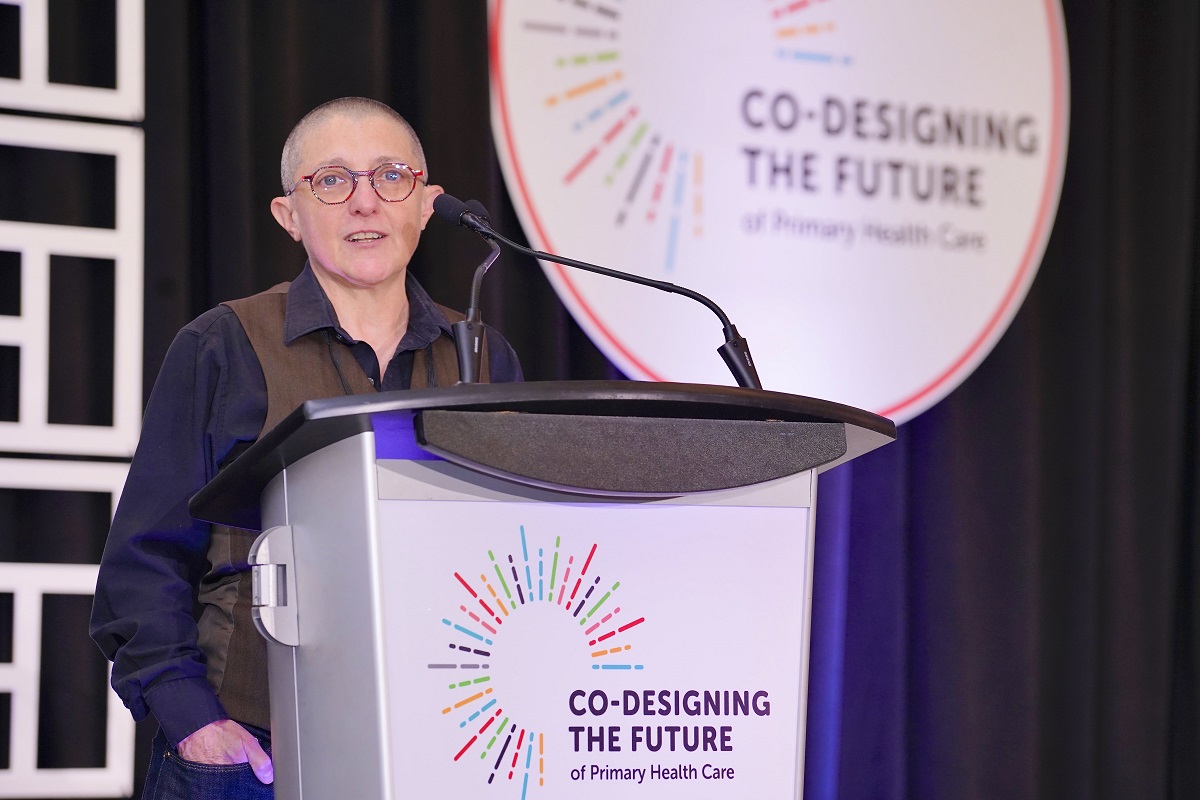
This year’s 2024 Transformative Change Awards were a year like no other for these amazing accolades recognizing innovation, leadership and dedication to health equity work in health care in Ontario.
This year, there was a record number of nominations for the team awards category, showcasing amazing work happening all across the province. The Alliance board and staff wish to thank everyone who submitted a nomination package, as well as our awards selection committee, who had hard decisions to make.
Congratulations to the recipients of this year’s awards – we are grateful to celebrate your work! We encourage everyone to celebrate with us, too – sharing these videos is one of the best ways to ensure decision-makers know about the impacts of community health organizations and teams, as we work to ensure the sustainability of programs, services and teams that are essential to health equity.
Here are the 2024 Transformative Change Awards recipients:
The Transformative Change Awards (teams/organizations) celebrate exceptional examples of the Model of Health and Wellbeing (MHWB) or the Model of Wholistic Health and Wellbeing (MWHWB) (for Indigenous organizations) in action and recognizes people, programs and services that champion transformative change to improve the health and wellbeing of people and communities facing barriers to health.
East Effort – An East Toronto Collaborative (Flemingdon Health Centre)
East Effort is a collaborative program that launched in East Toronto in 2021 to address the urgent needs of equity deserving communities during the pandemic. Over 3 years, the program has reached over 140,000 people in partnership with over 30 organizations. The goal is to improve the health and wellbeing of those most marginalized and was funded through the High Priority Community strategy. The program foundation is a collaborative governance model that is responsible for guiding the program, distributing the funds and ensuring program goals are achieved. This Steering Committee is composed of service providers, community residents and OHT representatives.
Niagara HELPS (Quest Community Health Centre)
Niagara HELPS (Homelessness Emergency Liaison and Peer Support) is a peer support program that employs individuals with lived/living experience and works with people experiencing homelessness who attend the Emergency Departments at Niagara Health Hospital at its St. Catharines and Niagara Falls sites. Peers help clients with system navigation, advocacy and connecting them to services in the community. The Niagara HELPS program enables coordinated care among providers to support continuity of care and to offer wrap-around services. It reduces reliance on hospital and emergency services and improves the health and wellbeing of people experiencing homelessness. HELPS started as a research project called HEART (Health and Equity through Advocacy, Research, and Theatre) by McMaster university research where people with lived experience shared their experience in the ED through theater.
Prescribed Alternatives Program (formerly Safer Supply Program; Peterborough 360 Degree NPLC)
The Peterborough 360 Degree Nurse Practitioner-Led Clinic (360NPLC) is the first NPLC to open a federally funded safer supply pilot site in response to Canada’s drug poisoning crisis and, specifically, Peterborough’s drug poisoning fatality rates, which are above Ontario’s average. A peer-driven, iterative, positive, interdisciplinary model of service keeps the individual goals of people who use drugs at the centre of their care and enables participants to re-engage with health care and other supportive services. From the outset, 360NPLC set out to involve the community of people who use drugs in co-creating the Safer Supply Program. The result is a Prescribed Alternatives Program that actually works for people who use drugs and which continues to evolve in response to participant feedback. Additionally, this NPLC-run Prescribed Alternatives Program demonstrates that prescribed safer supply can be offered by nurse practitioners working to their full scope of practice.
Adrianna Tetley Legacy Award, Tara Groves-Taylor, CEO, Community Healthcaring Kitchener-Waterloo

Tara Groves-Taylor is the CEO of Community Healthcaring Kitchener-Waterloo. The organization provides primary health care services to over 23,000 people in the Kitchener-Waterloo region. It is also one of the largest refugee health centres in Canada. Since joining the organization, Tara has made significant contributions to improving the health and wellbeing of people facing barriers, including refugees, people experiencing homelessness, and those with mental health and substance use issues. She helped inspire the creation of the innovative Healthcaring Pulse monthly Advocacy E-briefing for providers, decision-makers, advocates, and communities across Ontario to build system-wide support.
The award is named after Adrianna Tetley, Chief Executive Officer of the Alliance for Healthier Communities for more than 16 years. Always passionate about improving the health and wellbeing for people facing barriers, Adrianna helped put health equity on the agenda at many provincial tables. She has been a powerful force that has shaped the health equity and comprehensive primary health care landscape in the province.
The Adrianna Tetley Legacy Award honours an emerging leader in the primary health care transformation landscape who demonstrates Adrianna’s tenacity and determination to improve the health and wellbeing of people and communities facing barriers to health as well as the Alliance’s personality: inspired, open, perceptive, savvy, and feisty.
Denise Brooks Health Equity Champion Award, Florence Ngenzebuhoro, former CEO, Centre Francophone du Grand Toronto

Florence Ngenzebuhoro is a former CEO of the Centre Francophone du Grand Toronto. This multiservice centre, located in the Greater Toronto Area, serves as a hub and a primary support centre in Ontario for francophones from around the globe. Under Florence’s leadership, the organization has experienced a rapid growth and expanded its community outreach. Over the last four years, the Centre francophone du Grand Toronto has opened new offices in Mississauga and Scarborough and established a reception agency at Pearson Airport. Florence co-founded the “Mouvement ontarien des femmes immigrantes francophones de l’Ontario” (Ontarian Movement of Francophone Immigrant Women of Ontario—MOFIF) in 2001. She is also actively involved in various organizations, including the Université de l’Ontario français (UOF), the Assemblée de la francophonie de l’Ontario (AFO), the Comité consultatif national en établissement francophone (CCNÉF), and the Table nationale en immigration francophone (TNIF).
The award is named after Denise Brooks who was the Executive Director of Hamilton Urban Core Community Health Centre for more than 25 years. Denise had a long history of social advocacy, community service and development in the city of Hamilton. She worked relentlessly to bring about change in the pursuit of social justice. Denise is remembered for her commitment to health equity. Throughout her career, Denise worked to improve life for the most marginalized. She was committed to leaving no one behind. In the years before she passed, Denise led important work addressing social inequality in Hamilton and highlighting the detrimental impact of poverty on health.
The Denise Brooks Health Equity Champion award celebrates exceptional examples of the Health Equity Charter in action and recognizes an individual who demonstrates outstanding contributions to dismantling barriers to equitable health and championing policies and interventions that challenge discrimination and oppression, and address social conditions causing health inequities. Additionally, the award recognizes individuals who have made outstanding contributions to poverty reduction, advancing social justice and shows a strong commitment to anti-oppression, including commitment to addressing racism against Black and Indigenous people.
Joe Leonard Award, Brian Dokis, former CEO, Southwest Ontario Aboriginal Health Access Centre

Up until recently, Brian Dokis had been leading the Southwest Ontario Aboriginal Health Access Centre, also known as SOAHAC. Brian joined SOAHAC 25 years ago when 10 Aboriginal Health Access Centres were established in Ontario to deliver Indigenous-governed culture-based healthcare services to First Nations, Inuit and Métis Peoples across the province. Under his leadership, SOAHAC has grown to include six locations across Southwestern Ontario in London, Newbury, Owen Sound, Waterloo Wellington, Windsor and on the Chippewas of the Thames First Nation Reserve. Last year, SOAHAC celebrated its 25th anniversary with the official opening of a new, larger building in London. Since the ten Aboriginal Health Access Centres were launched 25 years ago, Brian was an active member of the AHAC Executive Leaders Circle that later grew into the Indigenous Primary Health Care Council, a key voice in advancing Indigenous Primary Health Care services throughout Ontario. Along with other Indigenous leaders, Brian sat on the Board of the IPHCC.
Brian is pictured here while being honoured by Indigenous leaders and IPHCC in a Blanket Ceremony to mark and honour this transformative moment in Brian's life and career.
This award is named after LAMP Community Health Centre’s first Executive Director, Joseph Patrick Leonard, whom Brian knew and recognized in his acceptance speech. The purpose of this award is to recognize individuals like Joe Leonard who have demonstrated extraordinary leadership, commitment and support for creative solutions to accessible, high quality and affordable health care.
Community Health Champion Award, Rainbow Health Ontario

Sil Hernando, pictured above, accepted the Community Health Champion award on behalf of Rainbow Health Ontario's entire team, noting that its drive to create more safe spaces and services for 2SLGBTQ+ people is as essential as ever, given the barriers, including violence and hate, that people face.
Rainbow Health Ontario is a program of Sherbourne Health, and it aims to create opportunities for the healthcare system to better serve 2SLGBTQ communities. Rainbow Health Ontario offers training for healthcare providers across the province to build their clinical and cultural competency in caring for 2SLGBTQ clients. It also supports system change by producing evidence-based resources and contributing a 2SLGBTQ health perspective to public policy processes. Rainbow Health Ontario acts as a research catalyst and hosts Canada’s largest 2SLGBTQ health conference. Rainbow Health Ontario’s work includes building capacity for trans health care across Ontario through clinical and cultural competency training, mentoring and fostering networks, as well as resources and consultation. This program also connects 2SLGBTQ communities to 2SLGBTQ-positive services through a Service Provider Directory.
The Community Health Champion Award is given to a partner of the Alliance whose work is helping advance health equity and who both inspires and amplifies the work of Alliance members towards improved health outcomes for marginalized people.
Congratulations to all!
